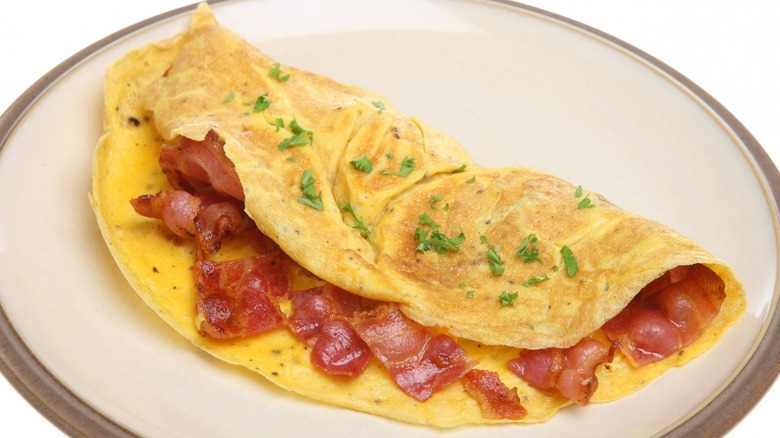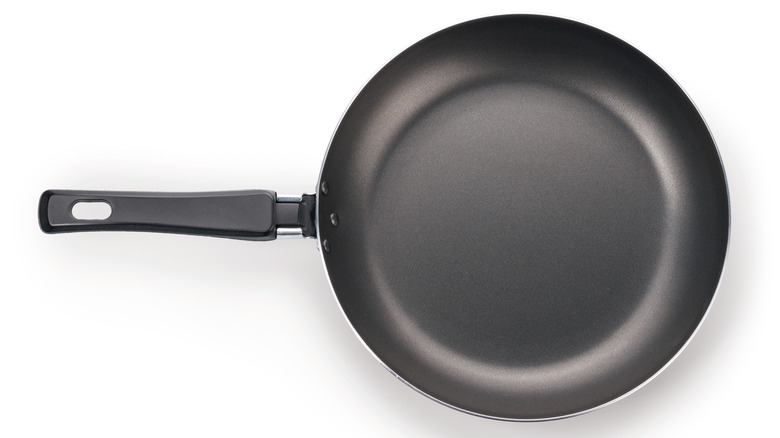Why You Should Never Cook Omelets In A Cast Iron Pan
A well-seasoned cast iron pan offers a great deal of cooking versatility, but it's still not ideal for all types of foods. These include tomatoes and other acidic foods, brothy dishes, flaky fish, and eggs. That last one is a little surprising, right? Although you can cook fried eggs in a cast iron pan if you absolutely must, you may want to think twice about making something as delicate as an omelet in it.
Food Crumbles explains the science behind this warning: On one hand, cast iron pans have rough and porous surfaces, and on the other hand, cooking eggs makes them stickier because of the chemical reaction that causes them to solidify. The proteins in the eggs react with the iron and make them adhere to the pan's surface. From there, tiny bits of egg settle into the minuscule crevices in the surface of the pan, producing a sticky, unevenly cooked mess. Plus, scrubbing the residue off the pan, which is a chore by itself, will just add to the misery of ruining your omelet and stripping the pan of its hard-earned seasoning.
What kind of frying pan is best for omelets?
While a seasoned cast iron pan is somewhat non-stick, its heat-retaining properties increase the risk of over-browning and overcooking your eggs — pretty much the opposite of how you want a classic omelet recipe to turn out. This also makes gently stirring and flipping omelets a challenge. And if still you're determined to cook your omelet in a cast iron pan, thinking that greasing it will be your saving grace, "Fresh Eggs Daily Cookbook" author Lisa Steele firmly disagrees in HuffPost, stating that eggs often stick to iron regardless of how much fat you use.
The bottom line is, don't ever cook omelets in a cast iron skillet. So, what kind of pan should you invest in to make an omelet?
Steele advocates for "a good steel pan or an enameled skillet" and highlights that it should be "a very shallow pan with sloped sides," which will make flipping and folding the omelet a much smoother process. Look for a nonstick option that's also thin and lightweight, so it heats up quickly and is easy to handle. All that's left is to fry your omelet at an appropriate temperature using the right technique, and you'll never have to worry about making sad eggs again.

